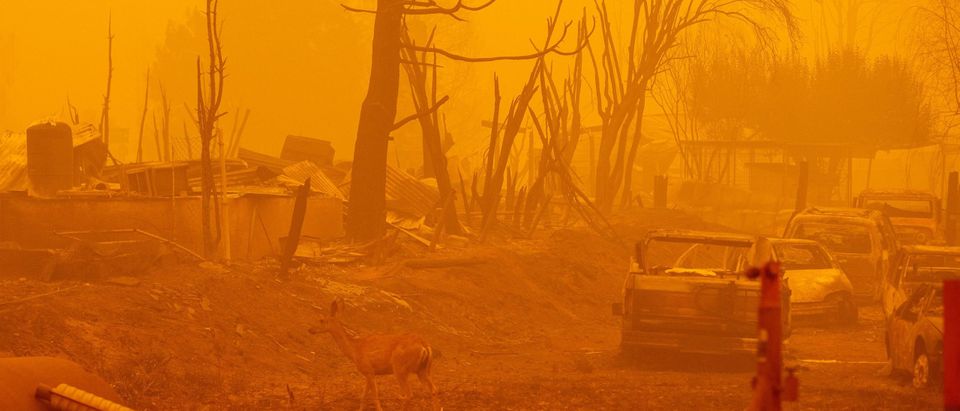Temperatures around the globe are likely to exceed the limit set by the 2015 Paris Climate Agreement, according to a U.N. report released Monday.
The Intergovernmental Panel on Climate Change (IPCC) report, the first since 2013, said humans are “unequivocally” responsible for the warming of the Earth. It expects temperatures to continue to rise until at least the mid-century.
The Paris Climate Agreement set a goal to limit the increase in temperatures to 1.5 degrees Celsius (2.7 degrees Fahrenheit) above temperatures in pre-industrial times, due to the expectation that climate change will quicken once that point is reached, the Associated Press reported.
The report details five scenarios in which different levels of pollution cuts are achieved. In all five scenarios provided by the 234 scientists who contributed to the report, accomplishing this goal is unlikely.
U.N. Secretary-General Antonio Guterres said in a Monday statement that the report was a “code red for humanity” and urged deep cuts to carbon emissions so that the 1.5-degree goal doesn’t “fall quickly out of reach.” (RELATED: ‘Wonder Why There’s A Crisis Of Trust’: Meghan McCain Accuses John Kerry For Taking Private Plane To Party)
Three of the report’s scenarios predict rising temperatures will likely exceed 2 degrees Celsius (3.6 degrees Fahrenheit) in the 21st century unless there is a sharp reduction in greenhouse gas emissions. Such an increase would result in increased heat waves, flooding, droughts, tropical cyclones, and reductions in Arctic sea ice, according to the report.
The report notes how intense heat waves that used to appear once every 50 years now occur almost five times as often. If temperatures warm to the 1.5 and 2-degree markers, heat waves might take place between 8.6 and 13.9 times more often.
The evidence is irrefutable: greenhouse gas emissions are choking our planet & placing billions of people in danger.
Global heating is affecting every region on Earth, with many of the changes becoming irreversible.
We must act decisively now to avert a climate catastrophe. https://t.co/TQlgp1D9AV
— António Guterres (@antonioguterres) August 9, 2021
Bob Kopp of Rutgers University, one of the report’s co-authors, told the AP the world was “locked in” to 6 to 12 inches of sea level rise by mid-century.
“It’s just guaranteed that it’s going to get worse,” co-author Linda Mearns, a senior climate scientist at the U.S. National Center for Atmospheric Research, told the AP. “Nowhere to run, nowhere to hide.”
Progress throughout the world to stem climate change appears to have taken Earth off what is described as the worst scenario it could take, unlike the previous five reports. The planet is now somewhere between the second-to-worst and middle scenarios, said co-author Claudia Tebaldi, a scientist at the U.S. Pacific Northwest National Lab, according to the AP.
“Anything we can do to limit, to slow down, is going to pay off,” Tebaldi said. “And if we cannot get to 1.5, it’s probably going to be painful, but it’s better not to give up.”
The worst, and hottest, scenario is increasingly unlikely, co-author and climate scientist Zeke Hausfather, climate change director of the Breakthrough Institute, told the AP.
“We are a lot less likely to get lucky and end up with less warming than we thought,” Hausfather said. “At the same time, the odds of ending up in a much worse place than we expected if we do reduce our emissions are notably lower.”


